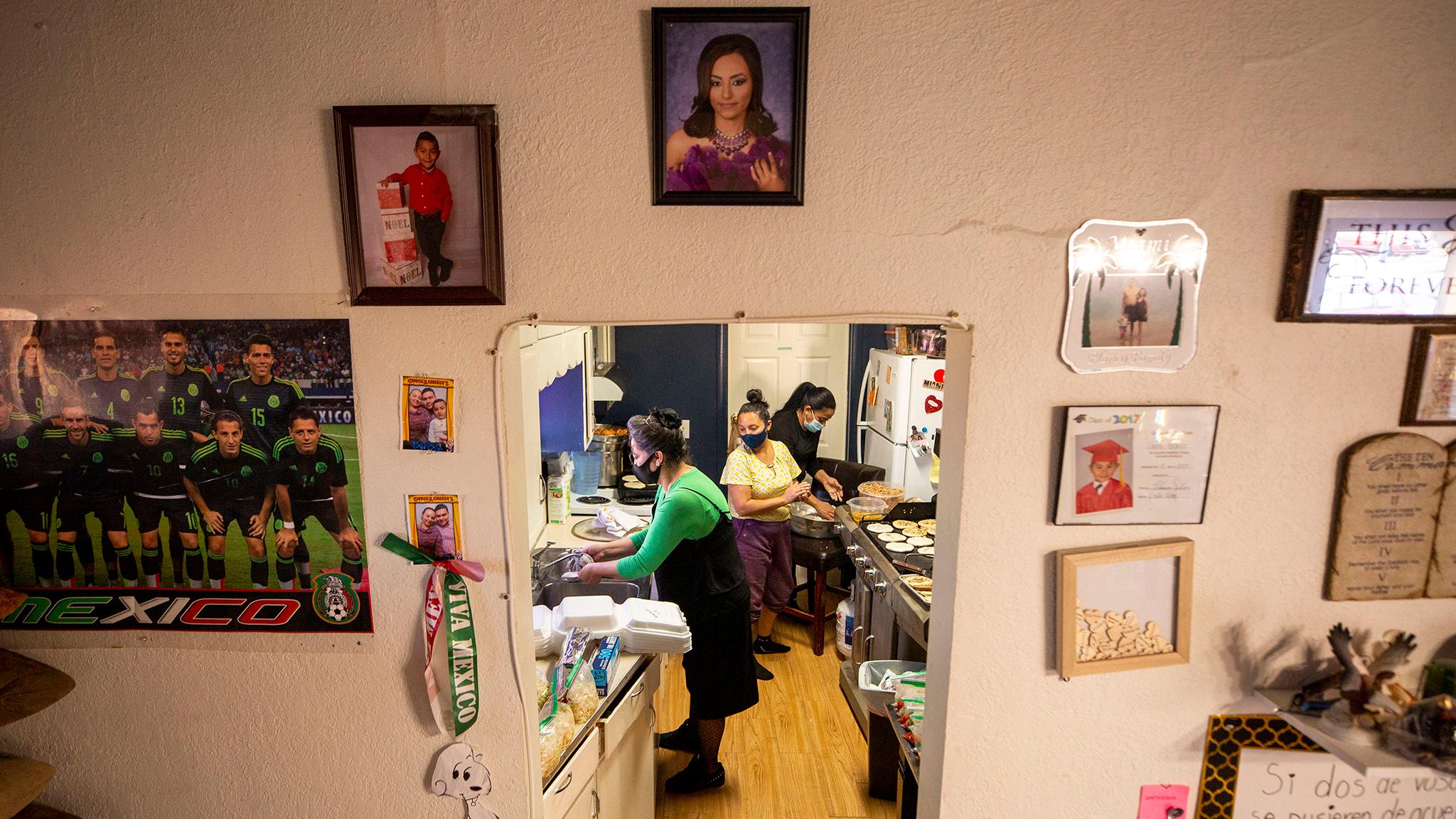Dawn has yet to break on a Saturday morning, but Yessenia Martinez is already hard at work. The front door to her west Denver home hangs open despite the freezing cold outside. It's hot in the kitchen, and the cooks could use some fresh air.
Inside, Martinez, Lupe Urquidez and Lucy Castillo buzz over a full-sized grill. Urquidez transforms flour and water into dough in an enormous metal bowl. She passes it off to Martinez, who fills the paste with pork or beans and cheese, then molds them into pupusas - savory, stuffed pancakes. They are then arranged on the flatiron griddle, each one getting flipped until they're seared to perfection. The pupusas crackle as they cook, filling Martinez's home with the sounds and smells of El Salvador, where her husband, Carlos Blanco, was born.
The women will make 500 pupusas this morning, each bound for friends and strangers who pre-ordered lunch online.
Each week, Martinez, Urquidez or members of a half dozen other families spend their Saturday mornings this way, making pupusas, mole, tamales, burritos and more for sale. They're members of Sanctuary4All Colorado, a support network for families with members who are fighting deportation. Each week, they take turns cooking and reaping the rewards of these "solidarity meals." The sales have raised money for legal fees, rents, mortgages and groceries since the pandemic changed so much around them.
"It's very important," Martinez said, "because right now, I need money for the lawyer."
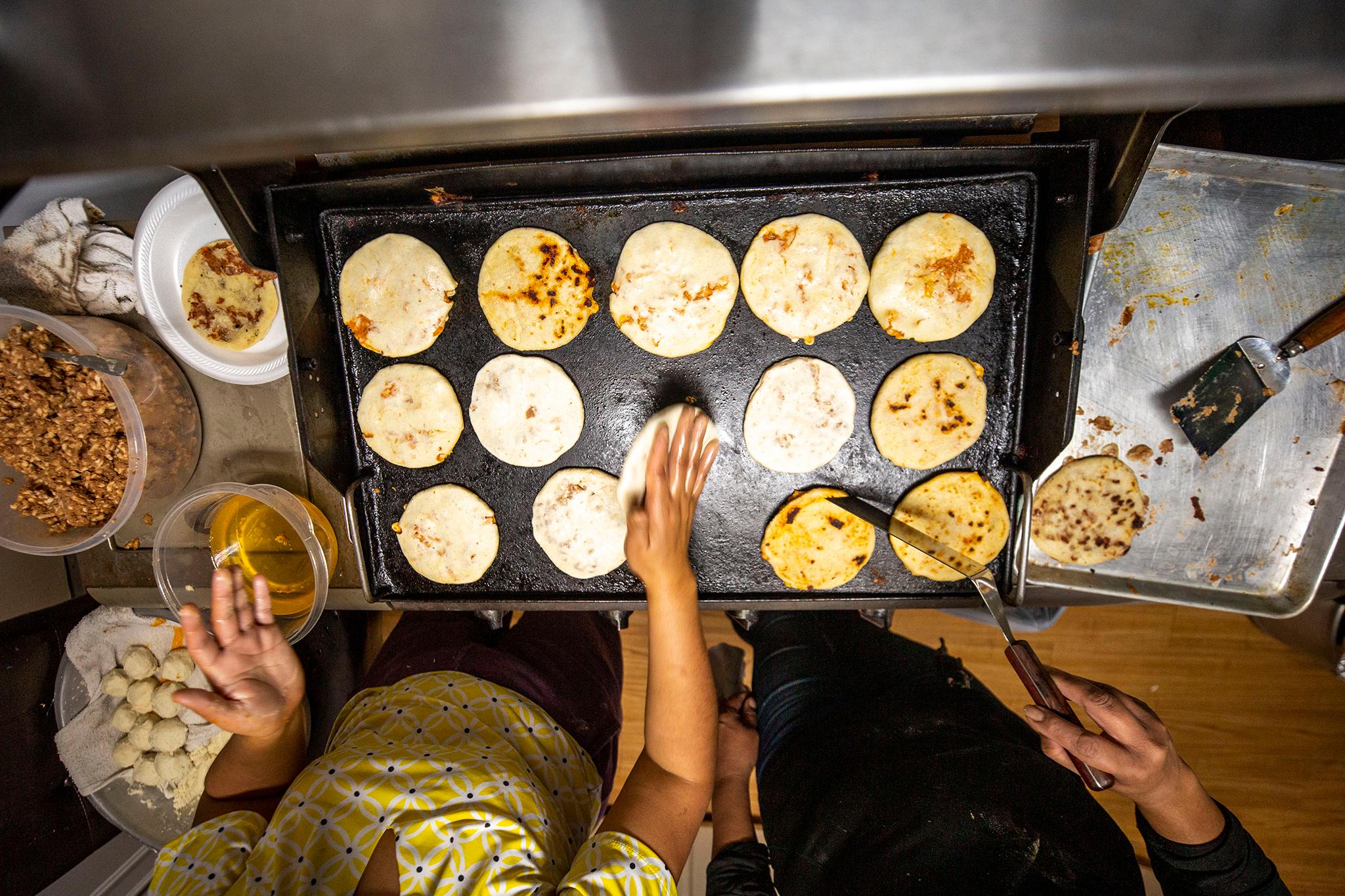
Blanco, her husband, came to the U.S. in 2005 and lived and worked in the country without legal status until 2011, when a car crash put him on federal authorities' radars. Ever since, he's been fighting for a pathway to remain in the country and avoid deportation back to El Salvador.
It's not uncommon for cases like his to take the better part of a decade. As people navigate the country's complicated, constantly changing legal landscape, they're usually granted permission to work. Blanco was holding down a job at a restaurant until COVID-19 restrictions meant his hours whittled away to nothing. Though taxes from his wages paid into Colorado's unemployment insurance system, his status meant he wasn't allowed to benefit from that program. His family was also ineligible for the congressional stimulus checks issued last year.
The money he and Martinez make from the food they sell helps them feed their two children and stay engaged in Blanco's case.
But other families have not fared as well during this recession. Even as President Joe Biden's new immigration policies give many hope for better outcomes in court, some face a choice between lawyers and groceries as the financial floor continues to disintegrate beneath them.
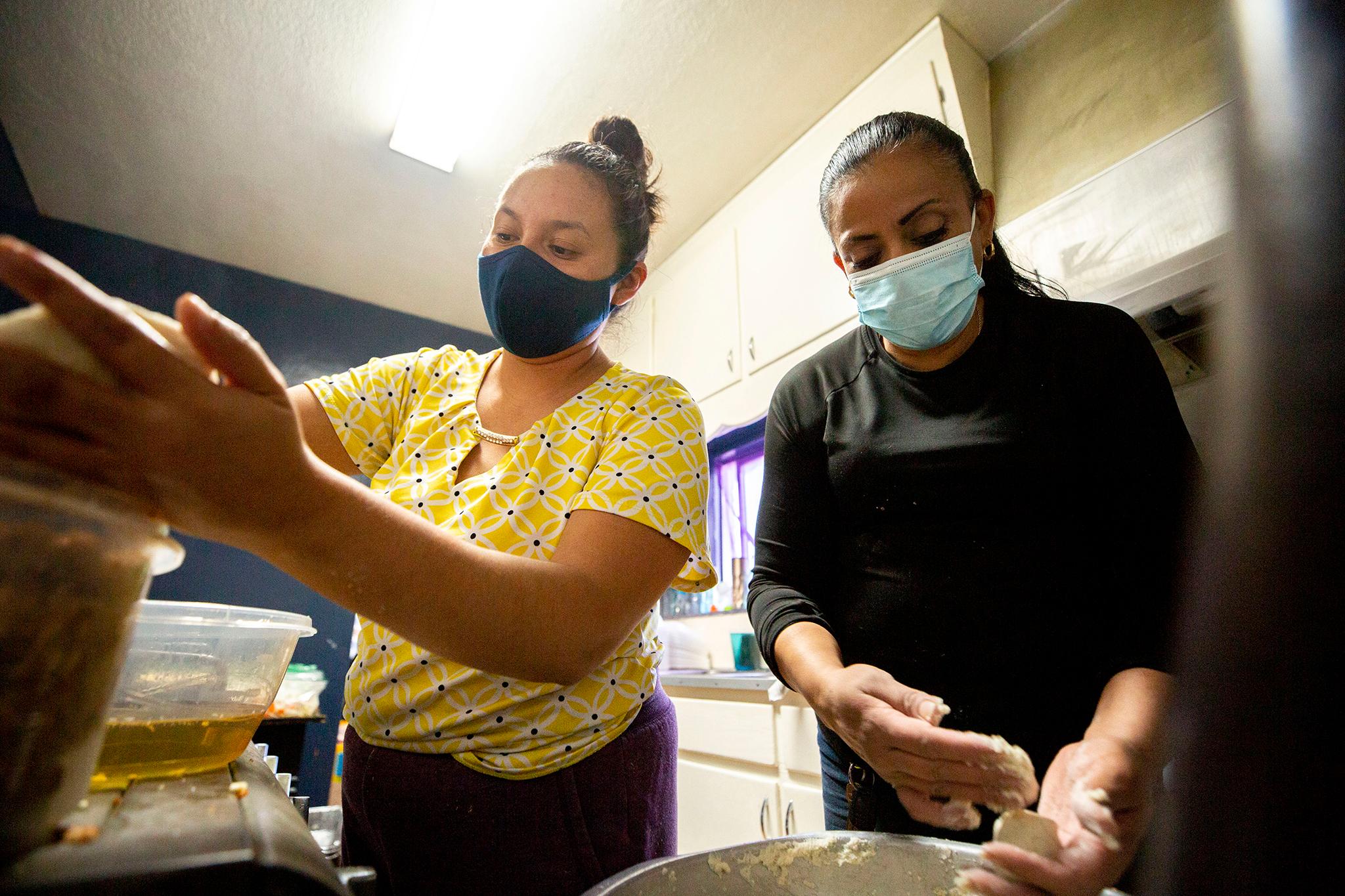
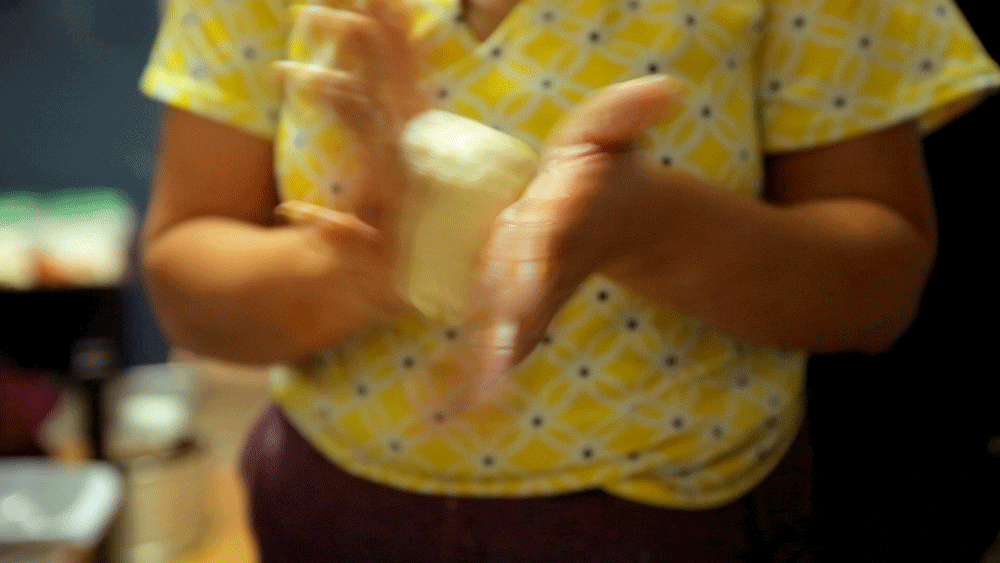
COVID-19 infections have disproportionately impacted people of color. The economics of this pandemic have, too.
Hans Meyer is a Denver immigration attorney and Carlos Blanco's council in court. His business dropped by about a third this year, and he said it was a direct result of new financial pressures that families with undocumented members have to deal with.
"Most folks in the immigrant community, particularly undocumented immigrants, were already on the margins of the economy," he said. "They've been hit horrifically hard."
America has seen a lot of unprecedented hardship in this COVID-19 moment, but worse outcomes in a recession are not new for people of color. According to the Center for American Progress, Black, Latino and Indigenous communities faced higher unemployment, lost more wealth and dealt with more forclosures than the country as a whole during the Great Recession a decade ago.
It's particularly difficult for people fighting immigration cases, Meyer said, because costs to renew work permits, hire attorneys and pay psychologists add up to enormous expense.
"Being in immigration court is like carrying a second mortgage," he said. "For a lot of people, it can become too much."
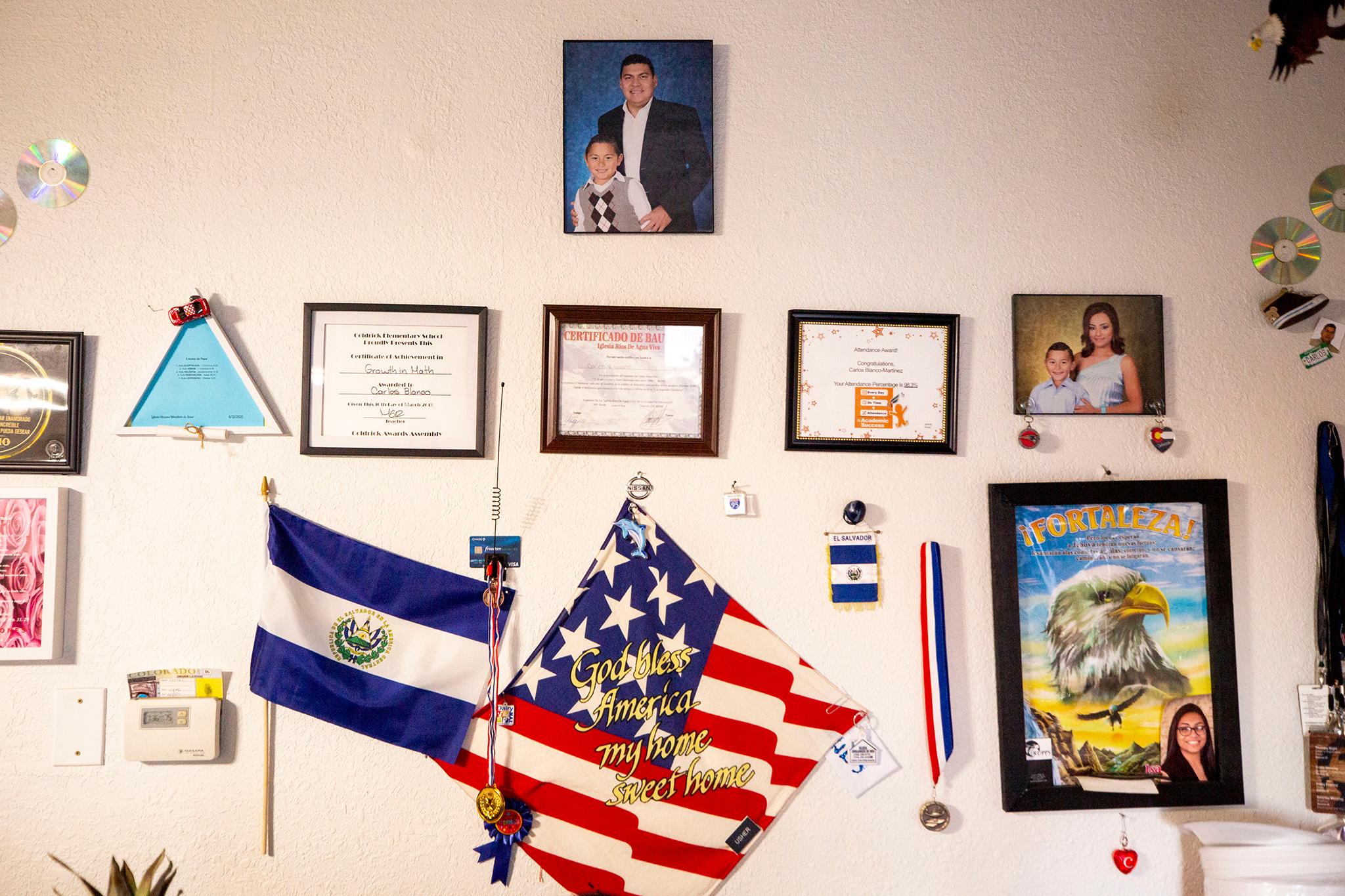
Ashley Harrington runs the children's program at Rocky Mountain Immigrant Advocacy Network (RMIAN), where she helps provide juveniles with free legal services. The nonprofit has been impacted by the people who left practices like Meyer's, she said. They've increasingly called RMIAN, asking for pro bono representation.
"We have people call us every day who say, 'I can no longer afford my attorney,'" she said. "Even families that may have been able to do it before can't do it anymore. And then they're stuck."
People who can't afford a lawyer must appear in immigration court by themselves. Those who represent themselves are much more likely to lose their cases.
Undocumented residents played no role in causing the existential crises wrought by the pandemic and recession, Meyer said, but they're acutely feeling both.
"It's compounding misery upon misfortune," he said. "It's unnecessary, but it's also tragic because a lot of people have cases they can win and cases that are worth fighting."
People like Martinez and Blanco have long been barred from government safety nets.
The families involved in Sanctuary4All have long worked together to raise money on their own, but those systems also broke as Colorado shut down.
Jeanette Vizguerra, who is fighting her own removal case as she leads the group, said the church fundraisers she used to organize were no longer options during the pandemic. That's why she dreamt up the "solidarity meals" program.
"I needed to create something to support my families," she said. "My families aren't supposed to take anything from the government. Not food stamps or unemployment or whatever. It's not possible."
More and more people have purchased their offerings each week, she said. Each family is benefitting from the money, but it's still not as much as they earned before "everything changed," when Vizguerra could muster huge groups together in a church.
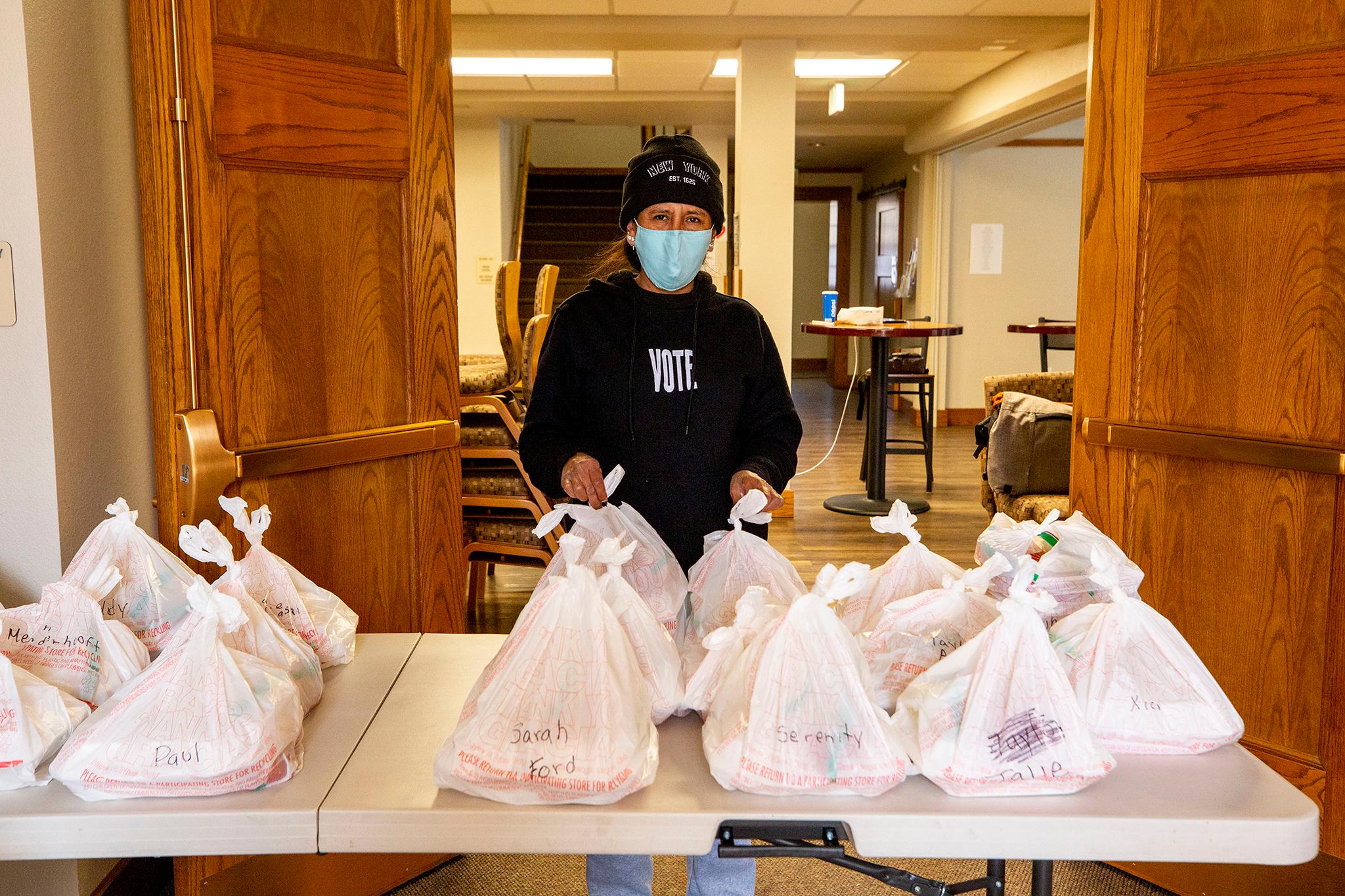
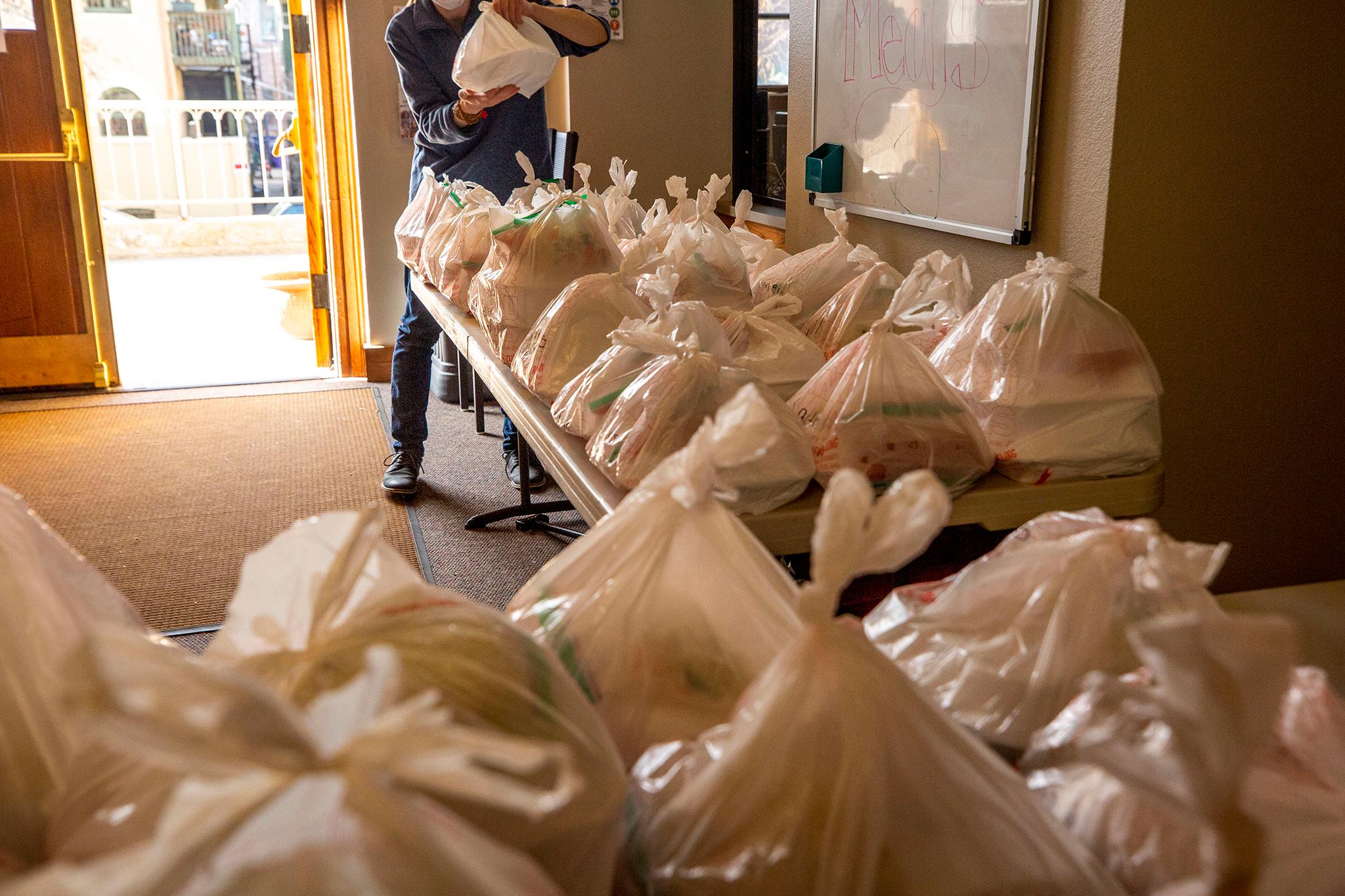
Still, Vizguerra is confident they'll be able to close the gaps. She's shown the other families that there's always a way to make it through the worst moments.
"It is possible to survive in difficult time," she said. "It is possible to survive and work and create ideas."
Back in the kitchen, Lupe Urquidez said the group has meant a lot. Her husband is currently detained in Arizona after he was deported and attempted to cross back into the United States to rejoin his family.
"It's important, because we support one another, financially and so we're not alone. We support each other emotionally," she said in Spanish. "Now, I have to support my family."
President Biden's immigration plan offers some hope amid the economic crisis.
In his first week in office, the new president signed executive orders that reversed some rules issued by President Trump and declared a 100-day freeze on deportations (though a judge in Texas has already challenged that). The Department of Justice also issued memos that redirected how the government should deal with people who arrive at the U.S. border, how judges should weigh cases and how U.S. Immigration and Customs Enforcement (ICE) should set their priorities.
Both attorneys Meyer and Harrington said they're feeling positive about their clients' futures under the new directives.
"We are feeling hopeful," Harrington said. "We know Biden can't fix everything, but we are very hopeful about this change where we're no longer having to wake up every day to new attacks against immigrants and refugees and asylum seekers."
Meyer said he's still waiting to see how the Biden administration will hold agencies like ICE accountable. And only Congress can create changes that could outlast the executive orders of a future president. The most crucial things, like who has the ability to apply for legal residency, rests with the legislature. Getting any measure through the closely divided Senate will take some political maneuvering.
"We're seeing good moves by the Biden administration, but it's really where the rubber meets the road," Meyer said. "My hope is that this is the first chapter in a story we write that has a happy ending for our immigrant families."
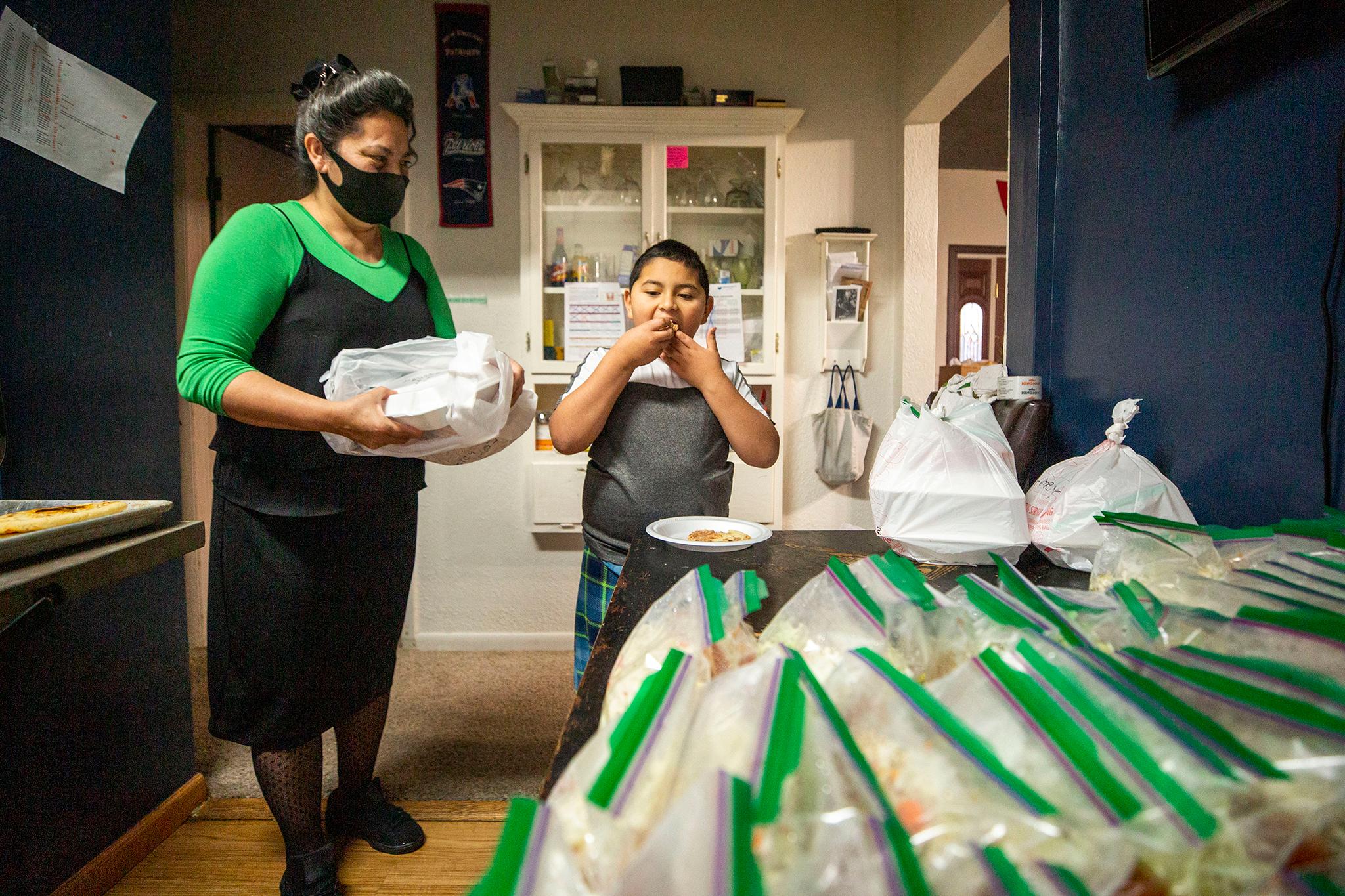
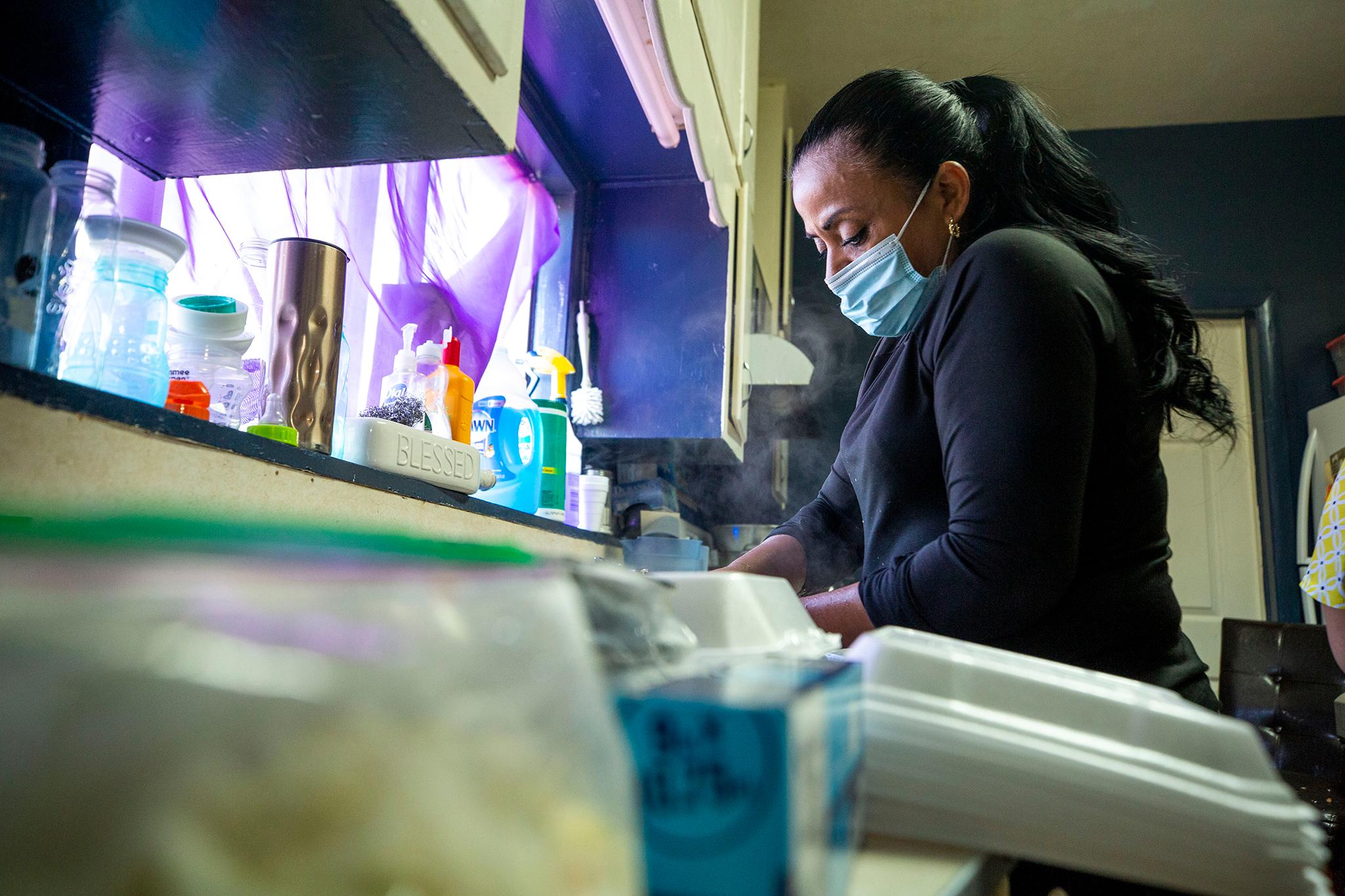
Vizguerra said she's not getting her hopes up until she sees more substantial action at the federal level, calling Biden's deportation moratorium a "minimum step."
Martinez is waiting for a day when people like her husband, "people that are not a danger to this country," will be left alone to work and live without years of costly appearances in court.
"We have the hope that he will change things," Urquidez said of Biden. "That's what we're hoping for. A reform that will allow us to be here legally. So we're not in the shadows. So we can get out of this."

